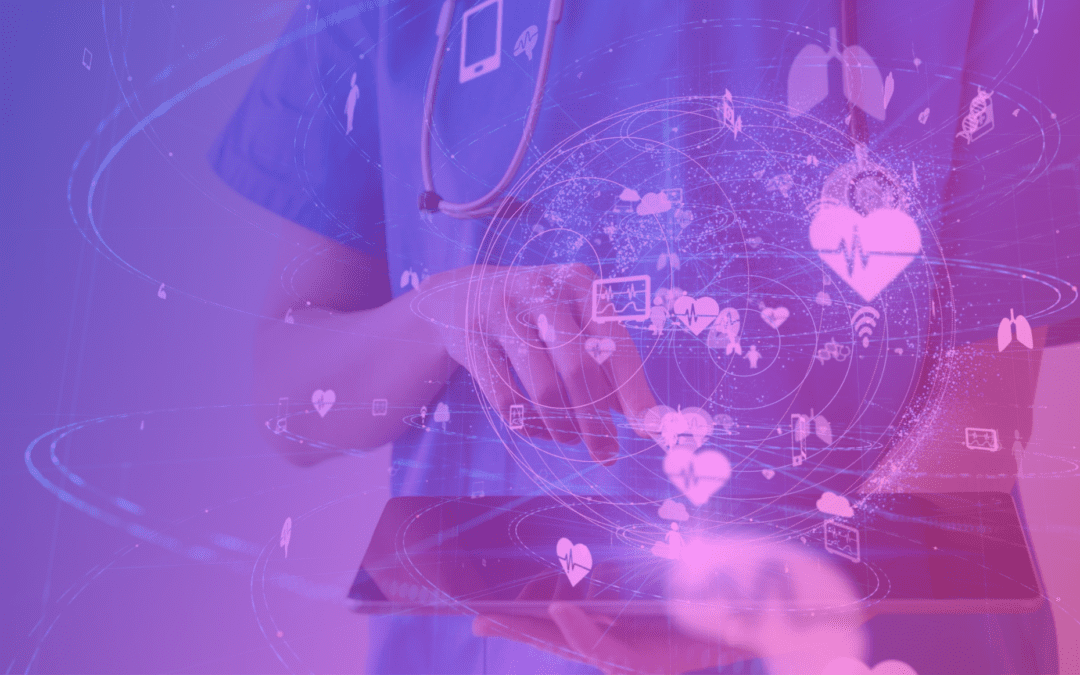In today’s fast-paced world, technology plays an increasingly significant role in reshaping various sectors, and healthcare is no exception. With cutting-edge advancements, technological solutions have paved the way for revolutionary changes in how we approach healthcare delivery, patient management, and research. In this blog post, we will explore real-life examples of how technology is helping to improve the healthcare system, making a positive impact on patient outcomes, operational efficiency, and overall quality of care.
Telemedicine
One of the most significant advancements in healthcare technology is telemedicine, which allows patients to consult with healthcare professionals remotely. Especially during the ongoing pandemic, telemedicine has become a vital tool in ensuring access to care while minimizing the risk of exposure. Patients can now receive medical advice, diagnosis, and prescriptions through video conferencing and remote monitoring devices. This technology has greatly improved healthcare accessibility for those in rural and underserved areas, reducing the barriers to care.
Electronic Health Records (EHRs)
Gone are the days of paper-based medical records that were prone to errors and delays in information retrieval. Electronic Health Records (EHRs) have transformed healthcare operations by digitizing and streamlining patient information. With EHRs, medical professionals can access patient records instantly, track medical histories, and share information seamlessly across different care settings. This not only enhances coordination among healthcare teams but also improves patient safety and reduces redundant testing, leading to more efficient and cohesive care.
Artificial Intelligence (AI) in Diagnostics
The integration of Artificial Intelligence (AI) into diagnostic processes has revolutionized the early detection and identification of diseases. AI algorithms can analyze a vast amount of medical data, including images, scans, and test results, to recognize patterns and detect abnormalities that may indicate an illness. For example, AI-powered imaging techniques have demonstrated remarkable accuracy in detecting cancerous tumors in radiology scans, expediting diagnosis and enabling timely interventions. AI has the potential to enhance accuracy, speed, and efficiency in diagnostics, contributing to improved patient outcomes.
Wearable Devices
Wearable devices equipped with sensors and monitoring capabilities are changing how individuals manage their health. From fitness trackers and smartwatches to portable ECG monitors, these devices empower individuals to monitor their vital signs, exercise levels, sleep patterns, and more. This real-time data can be collected and analyzed, providing valuable insights into an individual’s health and helping healthcare providers make informed decisions. Additionally, these devices promote preventive care and encourage individuals to take an active role in their well-being.
Emerging Healthcare Technologies
In addition to the transformative technologies mentioned above, it’s crucial to look ahead at emerging technologies that have the potential to further revolutionize healthcare. These innovations hold the promise of pushing the boundaries of what’s possible in healthcare delivery, research, and patient outcomes.
Blockchain for Secure Medical Data Management
Blockchain technology, known for its security and transparency, is finding its way into healthcare. It offers a tamper-proof and decentralized way to store and share medical data, ensuring patient privacy and data integrity. With blockchain, patients can have more control over their health records and grant access to healthcare providers securely. The potential impact of blockchain on data management and security in healthcare cannot be overstated, as it has the potential to revolutionize how we handle sensitive patient information.
3D Printing for Personalized Medical Devices
3D printing technology is revolutionizing the production of personalized medical devices and implants. From custom prosthetics to patient-specific orthopedic implants, 3D printing allows for precision and individualization previously unattainable. This technology streamlines production, reduces costs, and significantly improves patient comfort and outcomes.
Virtual Reality (VR) for Medical Training and Therapy
Virtual reality is no longer limited to gaming; it’s increasingly being used in healthcare for training healthcare professionals and providing therapeutic interventions. Medical students can now practice surgeries in a risk-free virtual environment, and patients can undergo therapy sessions for conditions like phobias or PTSD using VR. The potential applications of VR in healthcare are vast and include pain management, rehabilitation, and mental health treatment.
The examples shared in this blog post only scratch the surface of how technology is transforming the healthcare landscape. These advancements are streamlining healthcare delivery, improving patient outcomes, and enhancing overall quality of care. As technology continues to evolve, it is essential that we embrace these innovations and leverage them to create a future where healthcare is accessible, efficient, and patient-centric.
The potential of technology to revolutionize healthcare is limitless, and fostering collaboration between healthcare professionals, technologists, and policymakers will be crucial in harnessing its full capabilities. Let us celebrate these advancements and continue to explore, innovate, and adapt as we shape a brighter and healthier future.
Conclusion
In conclusion, the landscape of healthcare undergoes a profound transformation propelled by the relentless synergy between healthcare and technology. The journey toward “Revolutionizing Healthcare Through Technology” is not merely a pursuit of innovation but a commitment to a future where every individual has access to advanced, efficient, and personalized healthcare solutions.
As we stand on the cusp of unprecedented possibilities, remaining vigilant, fostering collaboration, and embracing emerging technologies that have the potential to shape the future of healthcare become imperative. The echoing refrain of “healthcare and technology” and “Revolutionizing Healthcare Through Technology” serves as a constant reminder of our shared responsibility to usher in a new era of wellness, where the power of technology is harnessed to ensure the health and vitality of communities worldwide. Let us stride forward with unwavering determination, celebrating the achievements of the present and eagerly anticipating the continued evolution of healthcare through the transformative force of technology.

